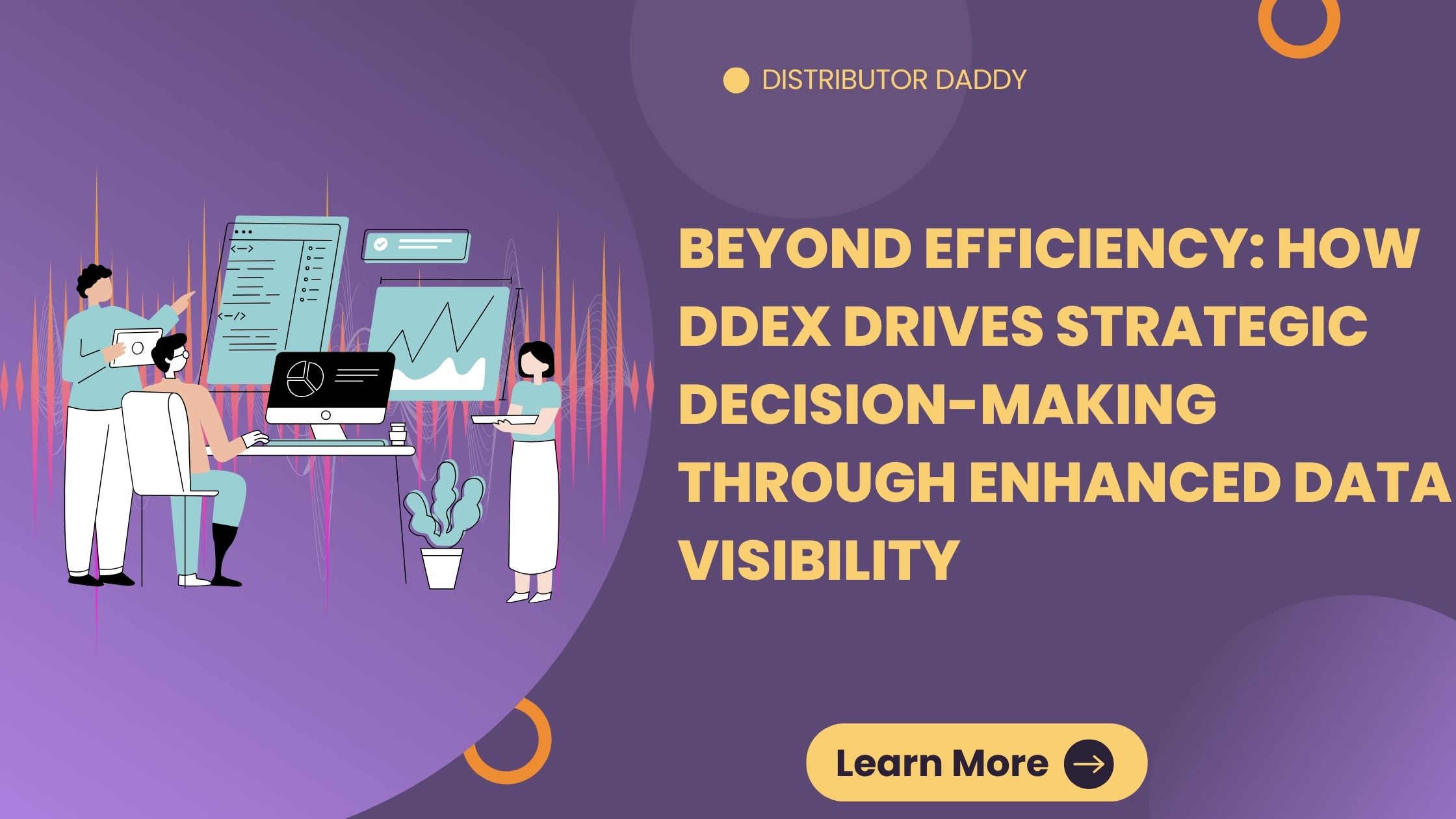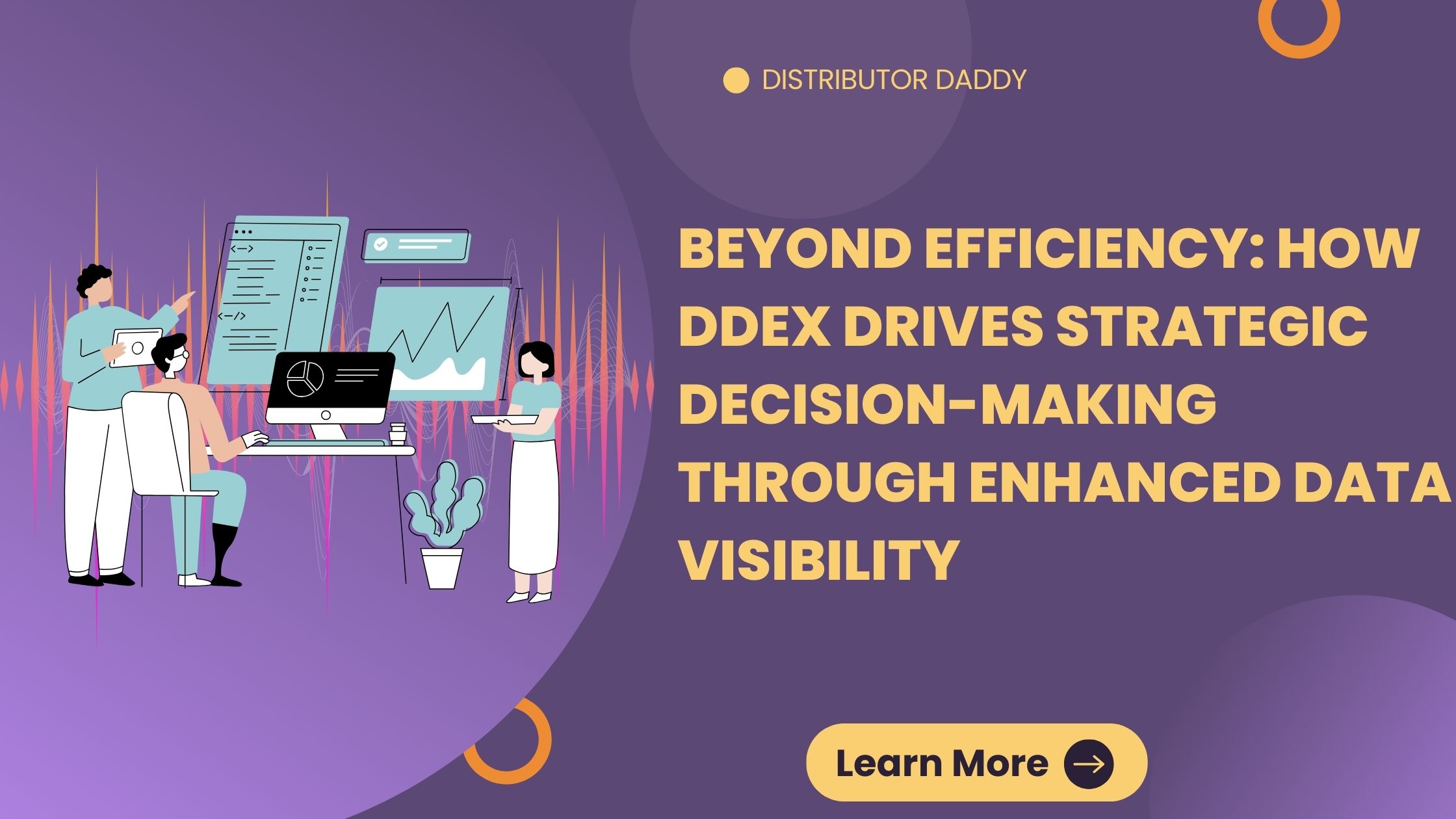
DDEX: Beyond Efficiency, Powering Strategic Decisions
Efficient operations are no longer sufficient in the data-driven business environment of today. Businesses must use information to their advantage if they want to stay competitive. Data Exchange Standards (DES), such as the Digital Data Exchange (DDEX), are important in this regard. This article goes further DDEX’s well-known efficiency advantages to examine how it promotes improved data visibility, which in turn helps your business’s entire strategic decision-making process.
The Power of DDEX: A Unified Language for Data Exchange
DDEX emerged as a collaborative effort between industry leaders to establish a standardized data exchange format. By providing a common language for communicating information about releases, artists, and rights ownership, DDEX has transformed the music industry’s data landscape:
- Streamlined Data Exchange: DDEX offers a standardized XML or flat-file format for data exchange, ensuring seamless communication between different systems like label management platforms, distributor portals, and royalty collection societies. This eliminates the need for manual data entry and reduces the risk of errors.
- Enhanced Data Accuracy and Completeness: DDEX mandates specific data fields, ensuring essential information is included in every exchange. This promotes data consistency and accuracy across the entire music value chain.
- Improved Data Visibility: By unifying data formats, DDEX provides a clear and comprehensive view of all relevant information. This empowers industry players to access accurate data on releases, sales, royalties, and listener behavior, fostering informed decision-making.
Enhanced Information Visibility for Competitive Advantage
Although increased efficiency in data exchange is a big advantage of DDEX, its real value is in its capacity to reveal strategic insights. DDEX gives clients one overview of music data throughout the value chain, enabling them to make data-driven decisions that have a big impact on their bottom line. How to do it is as follows:
Understanding Consumption Trends: Detailed data on streams, downloads, playlists adds, and radio airplay can reveal valuable insights into listener preferences and emerging trends. This information allows artists to tailor their content and marketing strategies, while labels and distributors can focus on genres and markets exhibiting strong growth.
Optimizing Distribution Strategies: With clear data on royalty splits and territorial distribution rights, distributors can optimize their strategies to ensure artists are fairly compensated and maximize revenue across different regions.
Identifying New Revenue Streams: By analyzing streaming data, labels and distributors can identify songs or artists with high engagement in specific geographic regions or demographics. This can lead them to explore new revenue streams, such as merchandise partnerships or targeted advertising campaigns.
Improving Royalty Collection: Accurate data on sales and usage is crucial for ensuring artists and rights holders receive proper compensation. DDEX facilitates efficient royalty collection by eliminating discrepancies and streamlining the reporting process.
Data-Driven Artist Development: Artists can leverage detailed data on listener demographics and engagement metrics to understand their audience better. This data can inform creative decisions, marketing strategies, and touring plans, allowing artists to connect with their fans more effectively.
The Future of Music: Powered by Data and DDEX
As the music industry continues to evolve, the role of data will only become more prominent. DDEX is well-positioned to be the foundation of this data-driven future. With its standardized data formats and efficient communication protocols, DDEX allows all stakeholders to gain a clear picture of the music landscape, enabling them to make informed decisions and achieve long-term success.
Conclusion
In conclusion, DDEX offers more than just improved efficiency in data exchange. It empowers the music industry to unlock strategic insights that can drive growth, optimize revenue streams, and ultimately, create a more vibrant and successful musical ecosystem. By embracing the power of DDEX and data-driven decision-making, artists, labels, and distributors can navigate the ever-changing music landscape and achieve sustainable success.
